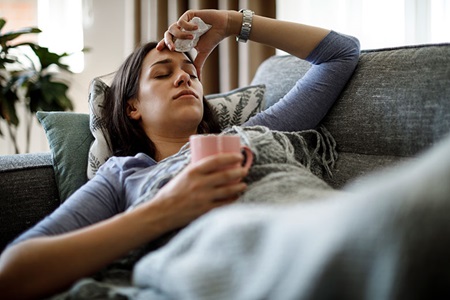The Flu Shot and Diabetes
Why Get the Flu Vaccine?
The flu vaccination is your best protection and will reduce the risk of getting sick with the flu. This year the CDC is recommending everyone should be vaccinated by the end of October.
A yearly flu shot is highly recommended if you have diabetes. People with diabetes (type 1, type 2, or gestational) are at a higher risk of health complications from the flu, particularly if your A1c is above the target range set by your diabetes care team. Having the flu also makes it more difficult to manage diabetes, as being sick is a stress to the body, and stress can affect glucose levels. It’s important to get a flu shot when you have diabetes, so you can reduce the risk.
Who Should Get a Yearly Flu Vaccine:
- Everyone with diabetes over the age of six months.
Who Should NOT Get the Flu Vaccine:
- People who are allergic to eggs (they are used in the production of the vaccine).
- If you are allergic to eggs talk with your health care team about your risk for flu and whether flu vaccination is a safe option for you.
How Well Does the Flu Shot Work?
The flu vaccine is 40-60 percent effective and takes two weeks after the shot for your immunity to build up. The vaccine protects against four types of influenza strains that public health officials predict are most likely to strike in a given flu season. The flu shot is effective for about six months.
Cases of flu usually peak in January or February, but you can still get infected any time up until May. Although it is recommended you get the vaccine as soon as it is available in the fall, even January is not too late.
COVID-19 and the Flu Vaccine
You can get a COVID-19 vaccine and any other vaccines, including a flu vaccine, at the same visit.
If You Get the Flu with Diabetes
Should you get the flu when you have diabetes before you get the vaccine you should contact your primary care provider right away. There are treatments for the flu, but prevention is much less stressful to your body than treatment for the flu.
In order to be prepared for cold and flu season, you should also have a “sick day plan” made with your health care team. The sick day plan specifies when and how to adjust medication, diet, and glucose monitoring when you are not feeling well.
Prepare yourself for the flu season and get your vaccine so you can reduce your risk of catching the flu and its potential complications when you have diabetes.
Although this content is reviewed by Joslin Diabetes Center healthcare professionals, it is not intended to replace the medical advice of your doctor or healthcare provider. Please consult your healthcare provider for advice about a specific medical condition.



